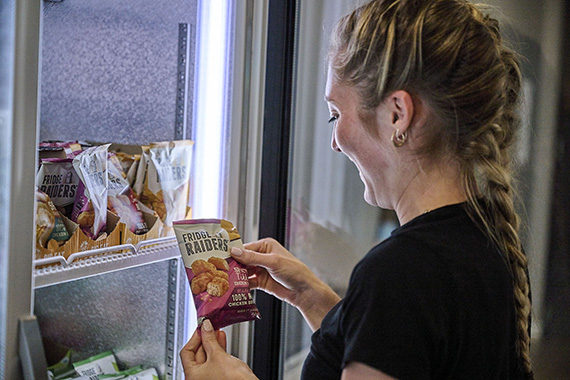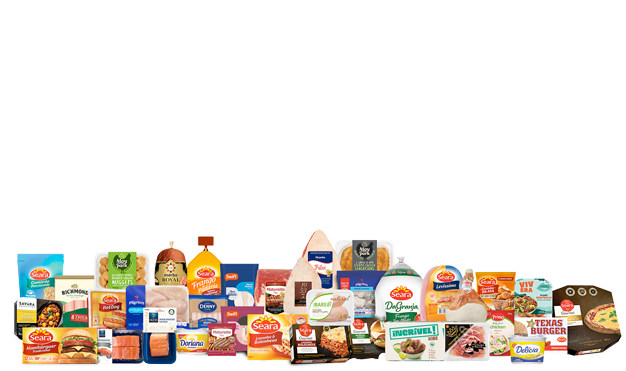Product Offerings
We strive to provide a diverse product portfolio that consistently meets – and exceeds – the evolving needs of our customers and consumers around the world. Across our operations, we have worked to expand our plant-based, organic, hypoallergenic, antibiotic-free, natural, and fresh product offerings, while also increasing our options for smaller serving sizes that provide convenience and reduce waste.
Plant-Based
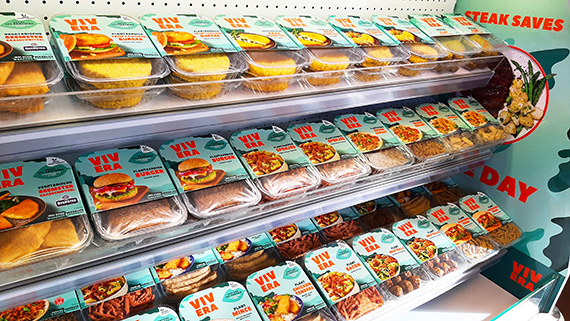
In 2021, we acquired Vivera, a company that develops, produces, and markets a diversified and innovative range of plant-based meat substitutes to large retailers in more than 20 European countries, with an especially strong presence in Dutch, U.K., and German markets. Vivera has added to our global platform of plant-based products and will help drive innovation within JBS. As a significant plant-based protein producer in Europe by market share, the company boasts technical expertise that can help to grow our global plant-based protein business:
- Our Incrível brand offers plant-based proteins for vegan, vegetarian, flexitarian, and vegan-curious consumers in Brazil.
- Richmond Meat-Free, a Pilgrim’s Europe Prepared Foods brand also offers such products as Meat-Free Back Bacon, Meat-Free BBQ Sauce Flavour Sausages, Chargrilled No-Chicken Pieces, and Meat-Free Deli Slices. Since its launch in 2019, Richmond Meat-Free has become a significant contributor to the growth of the meat-free category in the U.K.
Cultivated Protein
In 2021, we acquired the controlling share of Spain-based's BioTech Foods and gained commercially viable technology in the field of cultured protein production. In conjunction with this acquisition, we unveiled plans to build the first Research and Development Center (R&D) for Cultured Protein and Food Biotechnology in Brazil. This center will develop new techniques to expedite gains of scale and drive down cultured protein production costs.
The new technology has the potential to produce not only beef protein, but also poultry, pork, and seafood proteins. In total, JBS intends to invest US$ 100 million across the two initiatives, in line with our protein diversification strategy in response to emerging consumer trends and expected population growth over the coming decades.
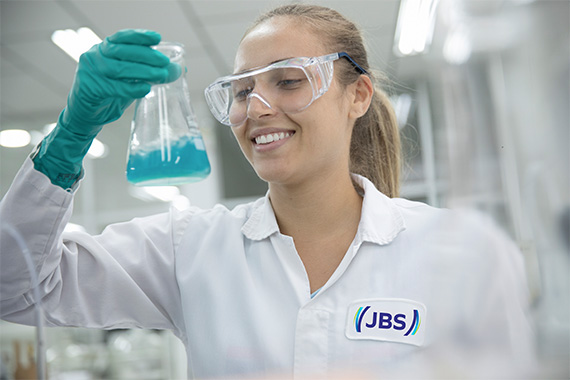
Aquaculture
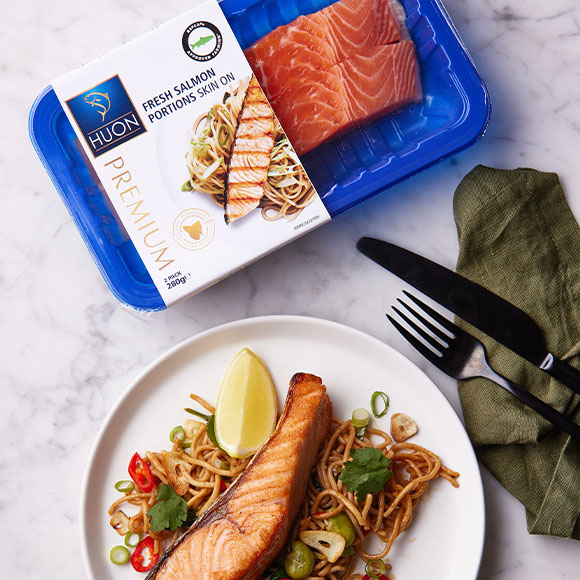
Our 2021 purchase of Australia-based Huon Aquaculture, a farmed salmon producer, also marked our first foray into seafood production. With JBS operations like Seara and Wild Fork Foods recently beginning to distribute fish and seafood in regional markets, having our own production has allowed us to streamline Huon’s operational infrastructure with the company’s existing operations.
Aquaculture also presents an exciting opportunity for our business from a sustainability perspective. Out of all proteins, it has the lowest carbon footprint, with farmed salmon contributing an average of 2.9kg of carbon dioxide per kilogram of edible product. Furthermore, Huon Aquaculture has achieved a Feed Conversion Ratio (FCR) below the industry average, making the business a net producer of protein.
Customer and Consumer Engagement
To ensure we continue to hit the mark, we engage in continuous dialogue with our customers and consumers through a variety of comprehensive, easy-to-use resources, such as websites and communication channels. Resources are organized by region, protein, and customer- vs. consumer-focus. Many of our businesses have also developed websites that allow each customer to create a personalized account and gain access to information on point-of-sale materials, packaging specifications, brands, premium programs, value-added products, food safety and quality, and the way the animal was raised.
Brand-specific websites and social media channels where consumers can learn more about our products and brands are also available. Through these channels, we provide recipes, basic cooking instructions, and nutritional information. Consumers can also search for recipes by cut or cook method and access product allergen information and recommended food safety handling practices.
Consumer-specific phone lines and email accounts offer another venue for transparency and customer service. Through these channels, our teams monitor direct product feedback, interact with consumers to address questions, concerns, or compliments, maintain a database to track trends, and provide performance reports to team members.
